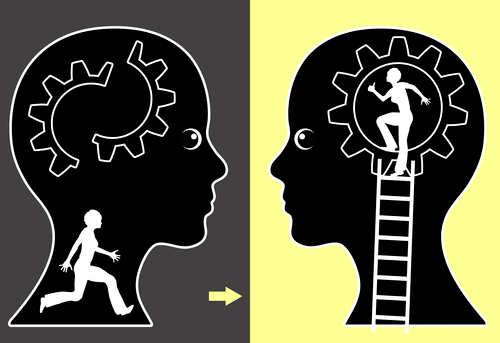Emotional Intelligence Competencies
According to the World Economic Forum, emotional intelligence is one of the top 10 most desirable skills required for making the workplace better in addition to having problem-solving skills, creativity, and critical thinking skills. This paves the way for emotional intelligence competencies which foster development and improvement of performance levels.
Emotional intelligence is an important measure to evaluate human potential. Those who are high achievers tend to stand out not only because of their achievements but, also because they can work well in teams. The more you become successful in life, the more critical these competencies become for you to be successful.
At its core, emotional intelligence is related to developing its core competencies which include:
Self-Awareness
Self-confidence
Self-Confidence involves having a sound sense of your own capabilities and worth. When you get to know your abilities, you can accurately use your strengths and can handle even the difficult of situations with ease and in a sensible manner. Having self-confidence allows you to develop a sense of presence as well as self-assurance which helps you to stand out in the team or group.
Emotional self-awareness

This competency of EI allows for reading and understanding your own emotions and then recognizing what its impact will be by using your thoughts and get feeling to guide decisions. When you have a high emotional intelligence level, you are attuned to your emotions and can recognize how your feelings and inner signals impact your job performance. You can see the big picture and can formulate the best course of action in a complicated situation.
Accurate self-assessment
This involves identifying your strengths and limitations. When you understand what you are good at and what areas need improvement, then you can learn with grace and welcome constructive criticism or feedback. Through accurate self-assessment, you know where to cultivate your strengths.
Self-Management
Adaptability
This component in emotional intelligence competencies requires flexibility to adapt to ever-changing situations and obstacles. When you can handle demands without losing your energy or focus and comfortably deal with the changing organizational activities, you can become flexible to new organizational challenges and look for new opportunities.
Emotional self-control
This allows you to keep impulses and emotions within your control so that disturbing emotions can be managed well. When you remain clear-headed and calm under pressure situations, you have developed a high level of emotional intelligence.
Self-achievement
This is the drive for improving performance so that it meets the inner excellence standards. When you have a higher EI level, you have the urge to improve performance standards both for your self and for others. You can set challenging yet measurable goals so that they are not only attainable but worthy as well.
Social Awareness
Empathy
Empathy refers to understanding the emotions of others as well as taking the active interest in their concerns. With this emotional intelligence competency, you will be able to understand the perspective of other people along with getting along well with people from different cultures or diverse backgrounds.
Collaboration and teamwork
When you have a level of emotional intelligence, you can create a friendly atmosphere for your team members. You become a role model for other people and draw others into an enthusiastic and active commitment to delivering the best of performance. You will spend time in cementing and forging relationships beyond only work relationships.
Inspirational leadership
This element within the emotional intelligence competencies category enables you to become an inspirational leader who will move people with a shared and compelling mission and vision. You can become a source of having a sense of a common purpose beyond only daily activities thereby, making the workplace an exciting place.
Emotional intelligence competencies are ways through which you can develop yourself to become competent along with understanding your inner strengths and weaker elements. These competencies form the basis of being emotionally intelligent so that you can excel in every aspect of life.
Practice with Free IQ Tests
Recent Articles
-
What type of test did I take
Apr 04, 22 04:09 AM
I was given a psychological test years ago, but wasn’t told what it was for. The rating used a bell curve and my score fell in the above average not yet -
ﹰﹰﹰﹰﹰﹰﹰGOOD
Aug 13, 21 03:20 PM
Since the enneagram test helps people to understand their strength and weaknessess. And helps them remove their weaknesses then the test is good -
Knowing the inner me
Aug 13, 21 03:17 PM
Sometimes I ask myself that is this my behaviour or not? Because I am really shy and I lack confidence, I find it hard to socialize with other people.I
